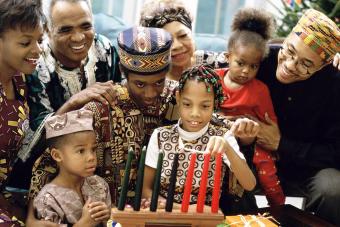
Parents of advanced readers often find it difficult to select chapter books for gifted children. While many children's books are labeled with a general age recommendation, this information isn't terribly helpful if your child is already reading well above grade level.
Finding Chapter Books for Gifted Children
A quick Google search will reveal a large number of children's reading lists compiled by teachers and librarians. Most of these lists are grouped according to a book's content and vocabulary.
Unfortunately, age recommendations usually don't apply to gifted children. Some gifted children begin reading chapter books recommended for second or third grade by the age of four, while others start reading at six and quickly skip to chapter books labeled for fourth or fifth grade students. This makes selecting chapter books for gifted children a bit of a challenge.
Elementary School
Series books tend to be very popular with gifted readers in elementary school, since most will work their way through a book rather quickly. Some series with strong appeal for gifted kids include:
- Amelia Bedelia by Peggy Parish
- Nate the Great by Marjorie Weinman Sharmat
- Jolly Postman by Janet Alberg
- Wayside School by Louis Sachar
- Betsy and Tacy by Maud Hart Lovelace
- Fudge by Judy Blume
- Einstein Anderson by S. D. Schindler
- Boxcar Children by Gertrude Chandler Warner
- Little House on the Prairie by Laura Ingalls Wilder
- Hardy Boys by Franklin W. Dixon
GT World, an online community for gifted and talented children and their parents, has compiled a large reading list based on visitor suggestions. The list includes young chapter books, medium chapter books, long chapter books, preteen reading, and young adult reading recommendations.
Another interesting reading list of books for gifted children can be found on the Hoagie's Gifted Education site. This is a collection of children's books featuring characters who are dealing with issues associated with their giftedness. If your child is struggling to relate with his peer group due to his advanced academic abilities, it may be worth checking out some of the titles on this list.
Middle School
At the middle school level, many teachers recommend encouraging gifted readers to tackle classic novels for the first time. Most of these titles will eventually be required reading for high school, but reading them for enjoyment at an early age is an excellent way to encourage a love of great literature. You can ask your child's teacher for suggestions or start with the following titles:
- Great Expectations by Charles Dickens
- Romeo and Juliet by William Shakespeare
- Frankenstein by Mary Shelley
- To Kill a Mockingbird by Harper Lee
- Huckleberry Finn by Mark Twain
Another good resource for chapter books for gifted children in middle school is the list of Alex award winners. Each year, the Young Adult Library Services Association publishes a list of books that were written for adults, but hold a special appeal for readers ages 12-18.
Tips for Encouraging Gifted Readers
If your child is a gifted reader, you may find it helpful to keep in mind the following tips:
- Feel free to offer suggestions for books, but let your child's interests be the final factor in deciding new reading materials. Gifted children are typically known for having strong passions, so most will have definite preferences for the types of books they want to read.
- Make sure your child has easy access to a dictionary so she can look up any unfamiliar words she may encounter.
- Don't push your child to finish books she does not enjoy. Reading is supposed to be fun, not a chore.
- Don't be surprised if your child wants to read several books simultaneously. This is very common for gifted children, since they are likely to have a diverse array of interests.
- If a book is traditionally recommended for much older children, consider reading it yourself first to make sure there are no mature themes that your family might find objectionable.







